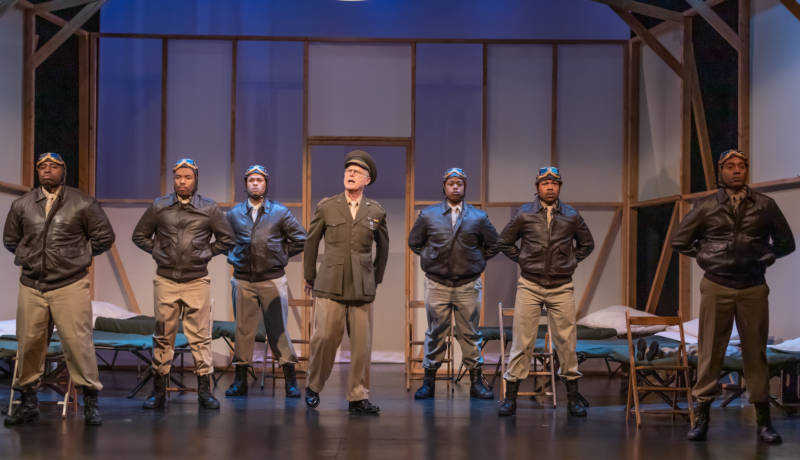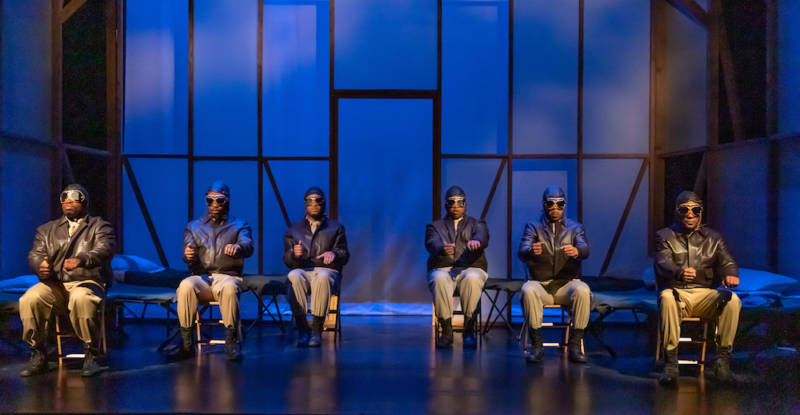There’s an air of coming full circle in L. Peter Callender’s decision to stage Leslie Lee’s Black Eagles, currently running at the Marines’ Memorial Theatre in San Francisco.
Callender, the artistic director of the African-American Shakespeare Company and director of the show, was in the original off-Broadway production in the early nineties. And so this play must feel like a reunion to Callender—much in the way the reunion of Elder Tuskagee Airmen brackets Black Eagles on either end. It’s not every theater-maker who gets the chance to build on a cherished early role later in life, and for Callender to bring his perspective of having performed in the original Black Eagles to the director’s chair must have felt irresistible.
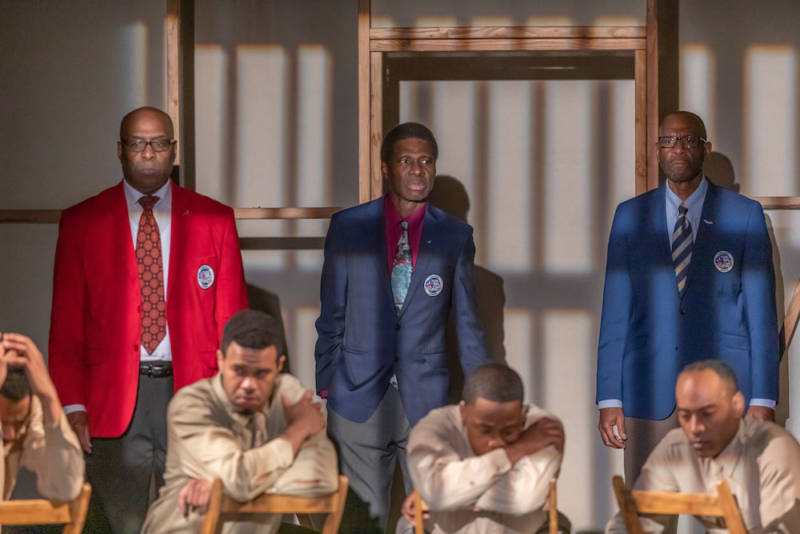
The play unfolds at a surprisingly sedate pace for a show about the first African-American pilots in the U.S. military, who trained and fought during World War II and were at the forefront of the push to racially integrate the armed forces. Set mainly in Italy in 1944—a crucial juncture for both the war and for the Black Eagles’ involvement in it—the play details the evolution of the 99th Pursuit Squadron into the 99th Fighter Squadron. When we first encounter the three older Airmen at their 1989 reunion, they josh each other with affectionate familiarity.
“Every year when we get together, everybody lies bigger than they did the year before,” jokes Elder Clarkie (Gift Harris), as Elder Nolan (Todd Risby) attempts to tell his war story for the hundredth time. Dressed in dapper blazers, imbued with the gravity of years and circumstance, they watch a slideshow and comment on each image as if for the first time. As they reminisce, their younger selves march into the room and take their positions, as the elders fade into the background.
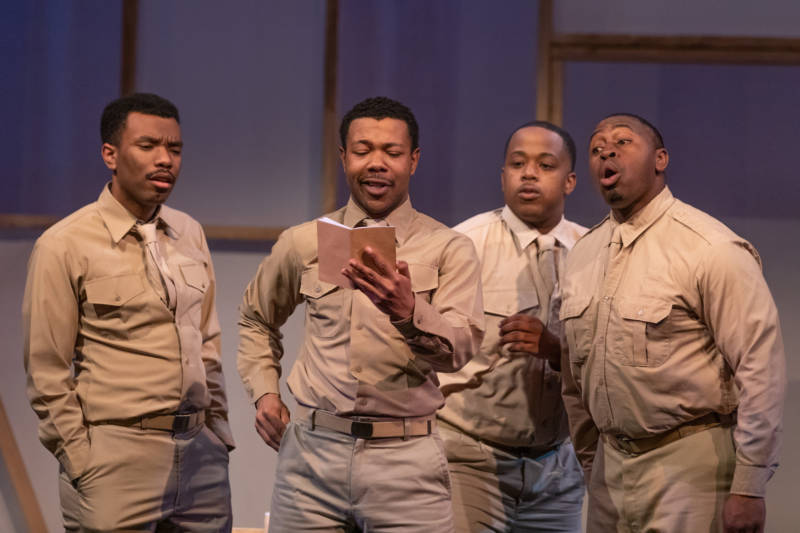
Frustratingly, the script is light on both character development and historical imperative. In a room full of high spirits and high hopes, we barely get a backstory for any of the six soldiers onstage. We don’t even get a reason for why soft-spoken Roscoe (Ron Chapman) has toted his ventriloquist dummy to Italy, despite the fact that he spends much of his free time in conversation with it. When the handsome Buddy (Donald Ray Antoine) clandestinely visits his Italian girlfriend, Pia (Margherita Ventura), it feels as inconsequential to the trajectory of the show as if she too were a dummy—except that the dummy has literally been given more lines. One man reveals himself to be a playboy, another a poet, but these character markers merely skate their mostly interchangeable surfaces.
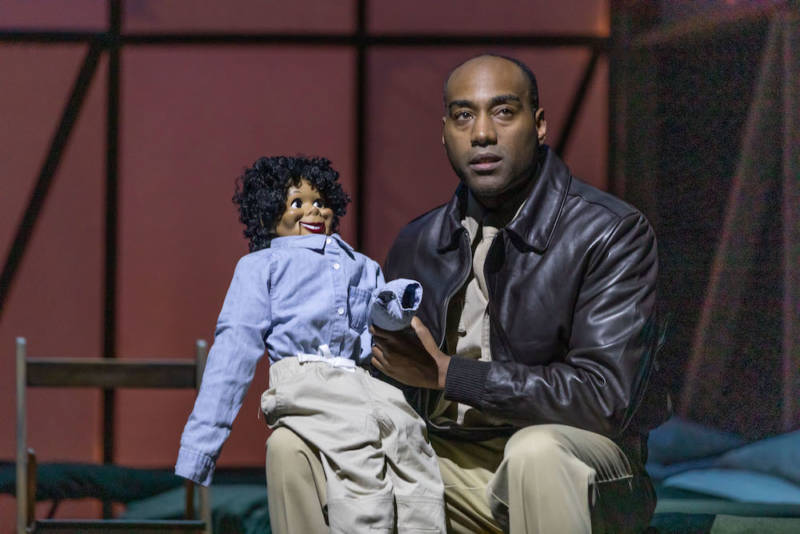
When the Black Eagles imagine their first kills, they do it in the adolescent language of their first hookups. When they rail at the injustice of their segregated circumstances (as black men, they are not allowed to use the same facilities as the white officers, and for much of the war they are not even allowed to shoot at enemy planes, merely shield American bombers from their bullets), their speeches sound blandly bullet-pointed.
